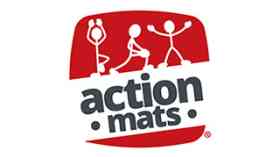Action Mats create resources for primary and early years children focussing on movement skills and active learning.
Supplier Focus
Latest Supplier News
Borg & Overström is a UK manufacturer of premium drinking water solutions. For over 20 years Borg & Overström has developed sustainable, bottle-less, hygienic, drinking water dispensers with the aim to provide exceptional, safe, self-service drinking water into schools, universities, workplaces and communal spaces.

 “The best way to help business is by lowering the burden of tax”, said the Chancellor during his Autumn Statement speech on 5 December. Lowering taxes to reduce direct cost to business is only to be commended but from an employer’s perspective it is the administration of these ‘reductions’ that is still most certainly a burden. However, for individuals and businesses alike it was encouraging to hear that the fuel duty increase that was due to be implemented in September 2014 has been cancelled and there will be no further increase in the current Parliament. And after 93 years paper road discs are to be a thing of the past; an electronic system is to be introduced from October 2014. Here are the key points and highlights of what was revealed for employers.
“The best way to help business is by lowering the burden of tax”, said the Chancellor during his Autumn Statement speech on 5 December. Lowering taxes to reduce direct cost to business is only to be commended but from an employer’s perspective it is the administration of these ‘reductions’ that is still most certainly a burden. However, for individuals and businesses alike it was encouraging to hear that the fuel duty increase that was due to be implemented in September 2014 has been cancelled and there will be no further increase in the current Parliament. And after 93 years paper road discs are to be a thing of the past; an electronic system is to be introduced from October 2014. Here are the key points and highlights of what was revealed for employers. 








